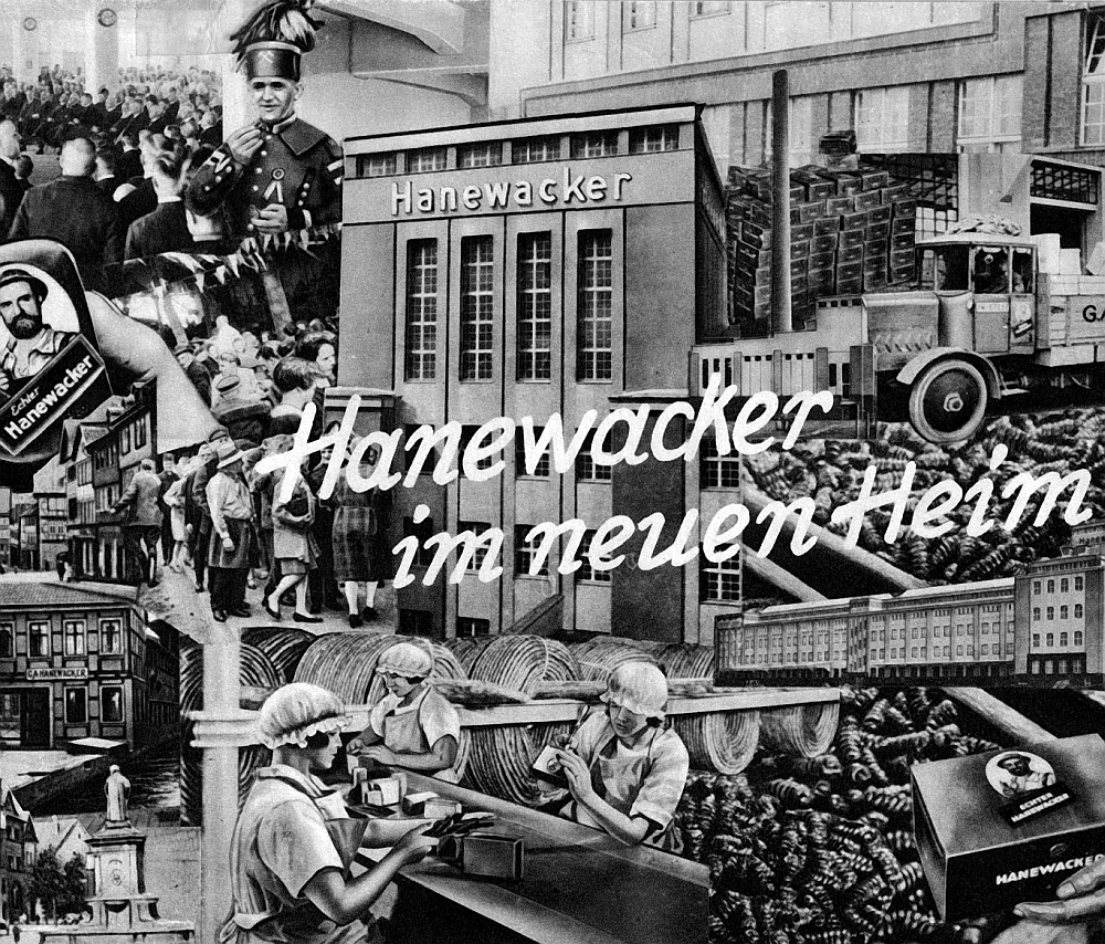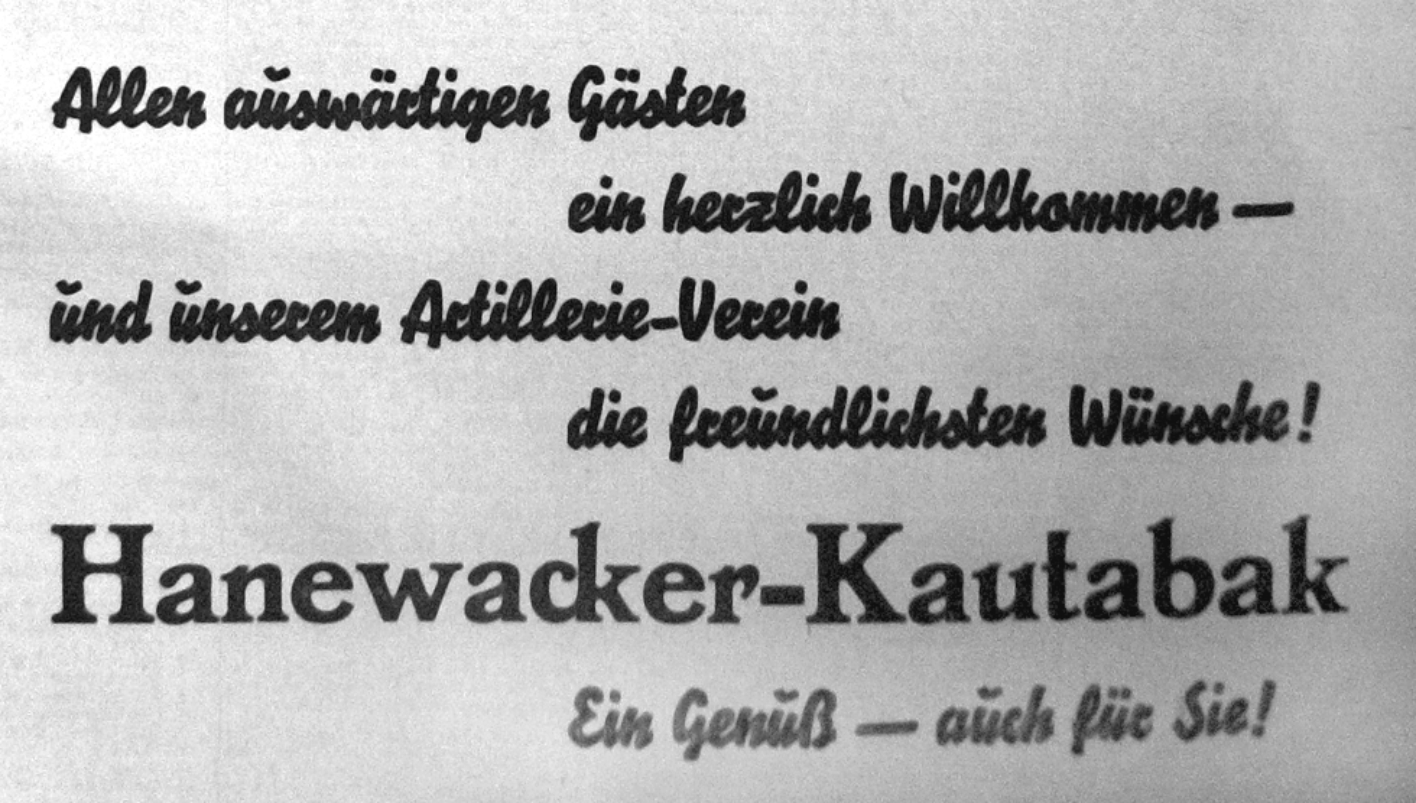

Tobacco processing was an important economic factor in Nordhausen. In particular, the production of chewing tobacco had a long tradition: at the end of the 1930s, Nordhäuser Tabakfabriken AG, a company merger under the lead of the Hanewacker company, employed 2,500 workers and was thus the largest employer in the town.
During the Second World War, German companies used forced labourers who had been deported to the German Reich from the territories occupied by the Wehrmacht in all economic sectors. Nordhausen tobacco manufacturers also profited from the use of foreign forced labourers. The Hanewacker company ran its own forced labour camp, in which around 360 mainly Polish and Soviet workers were forced to live at the end of 1944.
330 Jewish women from Austria were also forced to work in the Hanewacker and Grimm & Triepel chewing tobacco factories. The
